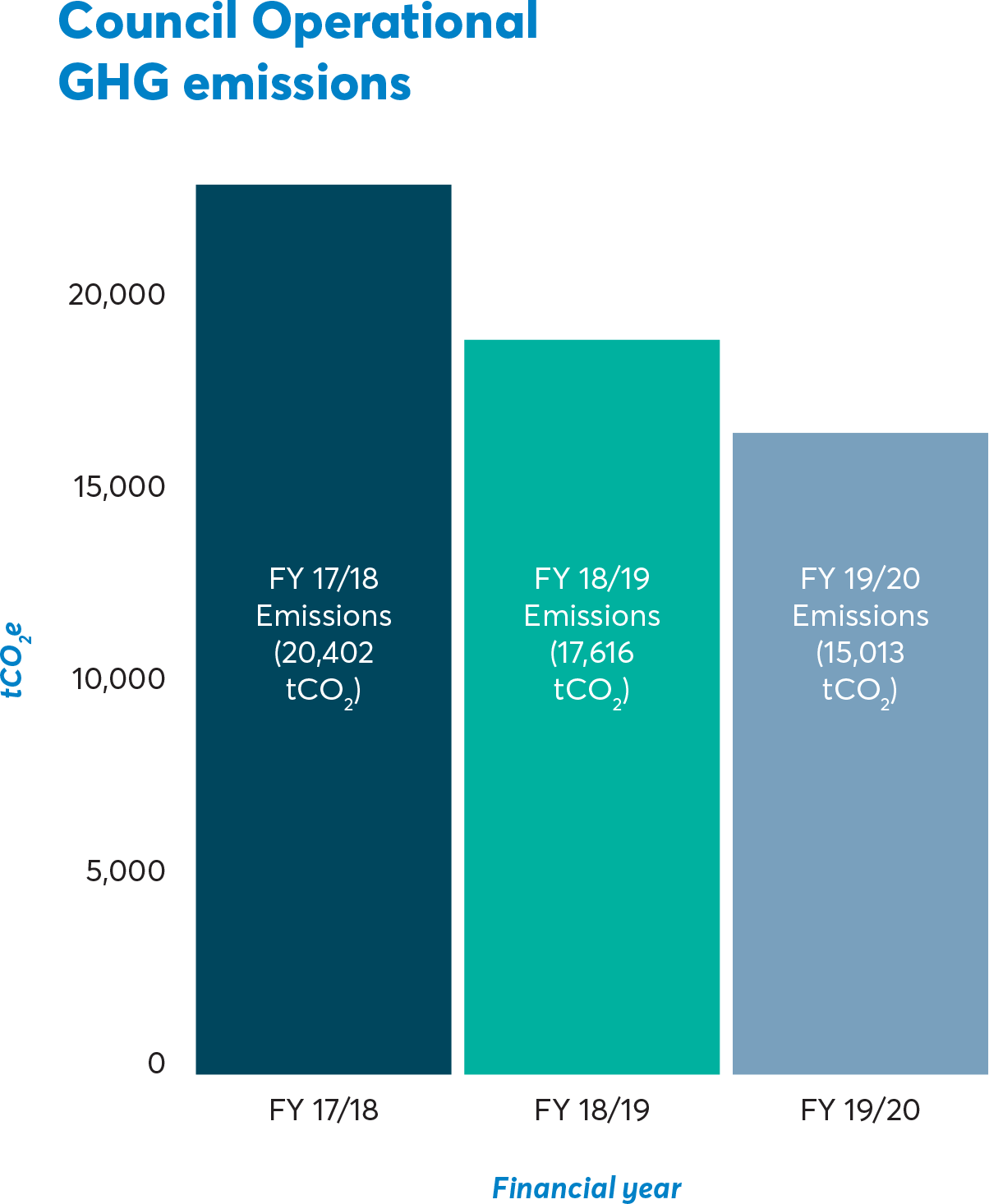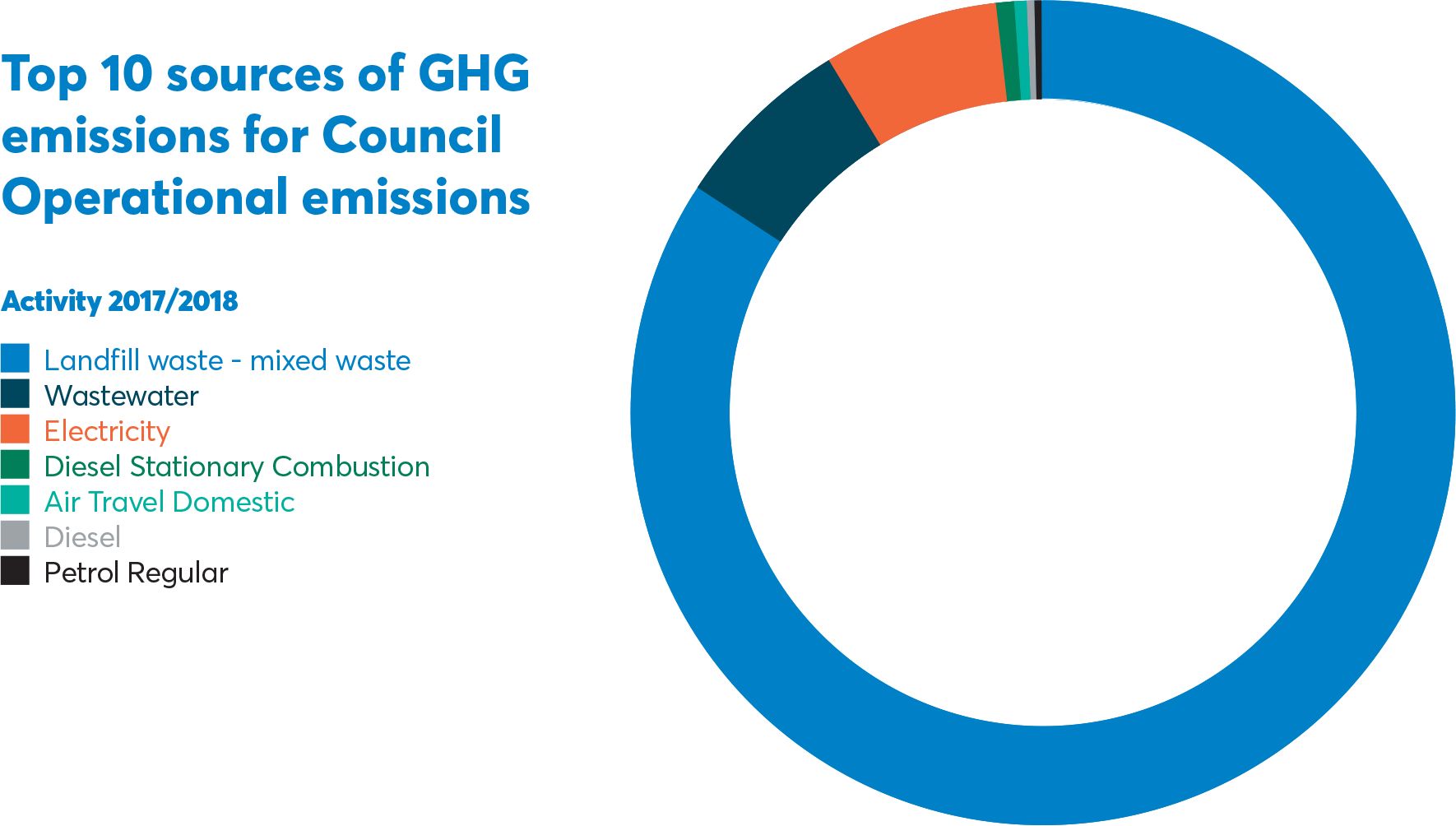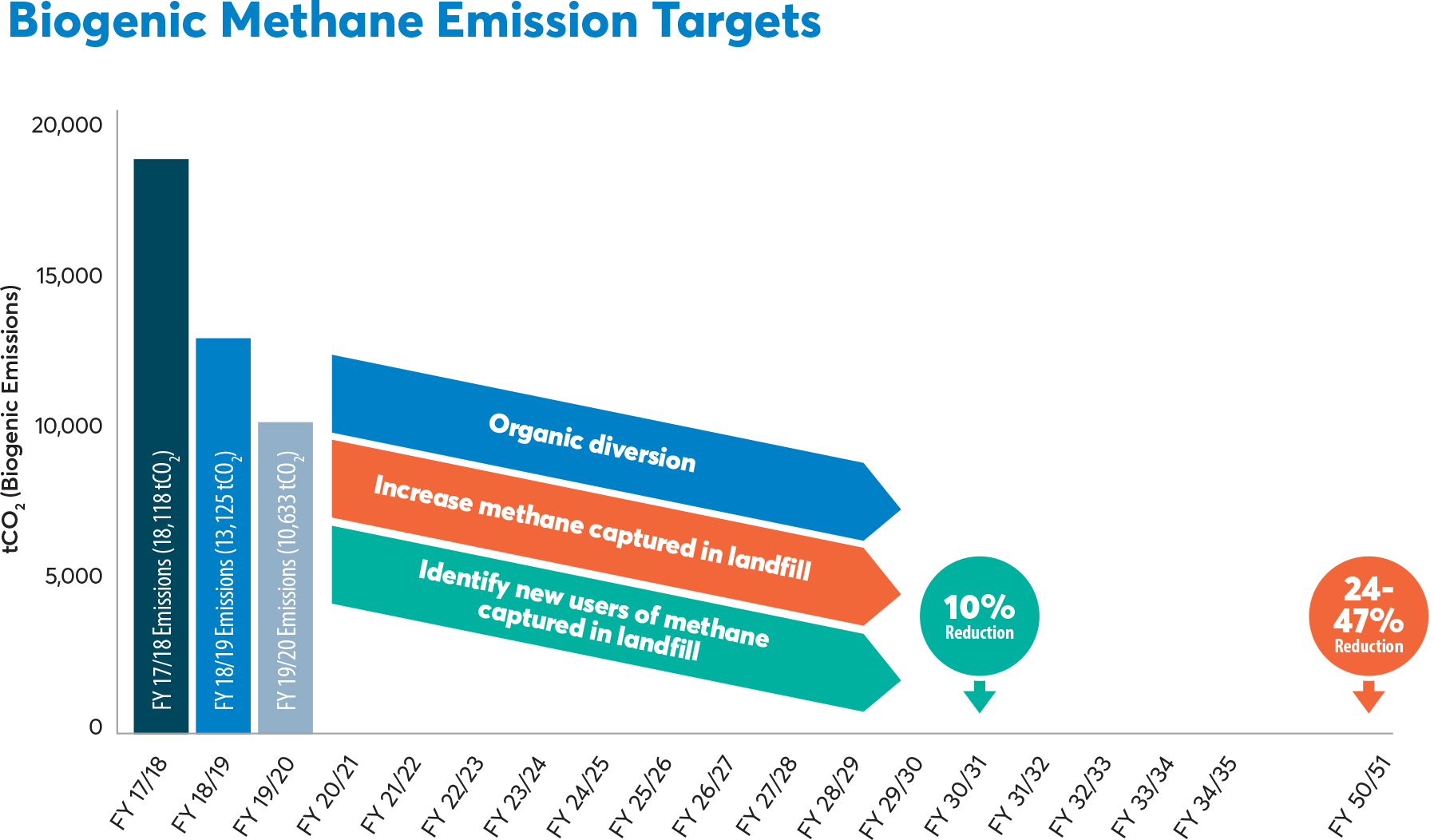In August 2020 Council committed to adopting central government’s five-year national emissions reduction budgets, which are expected to be developed and confirmed by 2022. Council made this commitment to ensure that it takes early and substantive action towards achieving carbon neutral status.
There are also two long-term Government targets that Council has committed to achieving. These are:
- net zero emissions of all GHGs (other than biogenic methane) by 2050,
- a reduction of 10% of the 2017 biogenic methane measurement by 2030, and a 24-47% reduction of the 2017 biogenic methane measurement by 2050.

The following figures show the pathway for Council to achieve net zero carbon emissions by 2050 and the main sources of Council’s GHG emissions. The main initiatives Council will use to reduce its emissions are improving energy efficiency, use of renewables, low emissions vehicles for its fleet, behaviour change and waste minimisation.



Mitigation Actions to Reduce Council’s Carbon Footprint
Actions underway
- Energy audits in key Council buildings will have recommendations for lower carbon operations, such as:
- Energy efficiency initiatives
- Fossil fuel switching for a low carbon emission alternative
- Renewable energy
- Replacing existing refrigerants with low global warming potential (GWP) refrigerants
(Budget: $81,970 across 3 years starting from FY 21/22) Budgets for implementation of recommendations identified in the energy audits will be allocated once the energy audits are completed.
• The Civic House Refurbishment will consider waste minimisation and will include initiatives that will contribute to running a more efficient building in terms of energy consumption for heating, ventilation, and lighting. These initiatives will be implemented in stages within a period of 7 years. (Budget: a portion of the total of $20,509,270 Civic House refurbishment, Civic House renewal plant & equipment and Civic House roof renewal). To be decided by Council in FY 21/22.
• Energy audits and implementation of recommendations will occur in water, wastewater and stormwater assets, including a GHG emissions study to improve accuracy of measurement data (Budget: $148,000 across six years starting from FY 20/21).
• Identify potential users for the energy (heat) mapped in the wastewater network that is potentially available to be recovered and reused in various parts of the city. (Budget: $30,000 approx., FY 21/22).
• Council has adopted an electric first policy when replacing/adding cars to its fleet (Budget: A portion of $100,000 for FY 21/22 will be allocated to electric vehicle purchase)
• Conventional lighting will be switched to more efficient lighting technology in buildings and sportsgrounds (Budget: $452,804 for Trafalgar Park and $860,000 for sports ground for the next 10 years)
• Council is working to ensure that waste minimisation is built into the operation of its facilities and events, both in its own operations, and the conditions of use by the public. This includes a focus on reduce and reuse over recycle, composting of food scraps and integration of recycling where appropriate. The Rethink Waste programme is being used to upskill event organisers and improve resources for waste minimisation in tandem with this process.
• Behavioural change programmes (eg, active transport, waste minimisation).
• Council’s revised Procurement Policy, which is now guided by the underlying principle of minimising GHG emissions, will be implemented.
• All Council reports will consider the potential impacts and risks that climate change presents so that this is included in decision-making processes.
To be implemented
• An Energy Management Programme, based on ISO 50001, will be implemented.
• A framework to include climate change consideration in all business cases will be developed.
• There will be continuous monitoring of data from buildings management systems (energy meters, utility bills and other sources) so these can be regularly analysed to identify further energy savings.
• Behavioural change programmes (eg building energy usage).

Biogenic methane emissions are the result of biological processes in the waste sector (landfill and wastewater treatment plants). In base year FY 2017/18, Council’s gross GHG biogenic methane emissions were about 18,118 t CO2-e. The reduction target for these emissions are:

Emissions other than biogenic methane are related to carbon dioxide, nitrous oxide, and F-gases (hydrofluorocarbons, perfluorocarbons and sulphur hexafluoride). In base year FY 2017/18, Council’s gross GHG emissions other than biogenic methane were about 2,285t CO2-e. The percentage of the emissions reduction’s targets over the three budget periods are yet to be set by government by 31 December 2021 and will be adopted by Council.




